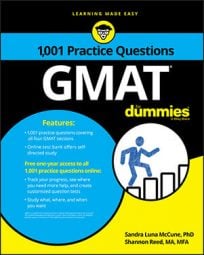Verbal: Reading Comprehension
- Read the entire passage. Don't skim.
- Read the question prompt and ask yourself what type of question it is: is it asking for the main idea, for a fact from the passage, for the best answer based on your inferring, about the style and tone, or is it another type?
- Eliminate answer choices you know cannot be correct. Then return to the passage and look for your answer.
- In questions about the author's tone, remember that the Reading Comprehension passages are usually written in fairly neutral style.
- In vocabulary questions, avoid guessing on a big word you don't know just because it sounds impressive.
- When answering an inference question, look for logical hops in thinking, not giant, unsubstantiated leaps.
Verbal: Sentence Completion
- Read the sentence carefully and notice the place where you think an error has taken place. Look for answer choices that change that spot. Don't get distracted by other choices.
- Look for problems in the verb tense or use of pronouns. If you're sure the error is not there, look for errors in parallelism and word choice. If you still can't find the error, check the placement of phrases.
- Remember that about three Sentence Completion Questions on every GMAT will not have errors, and Choice A will be correct.
- Re-read the answer choice you're leaning towards in the context of the entire sentence before committing to it.
Verbal: Critical Reasoning
- There are several different types of Critical Reasoning questions, so it's a good idea to read the question first before the passage. That will help you establish what the question is looking for: to support the argument, to weaken it, to conclude it, and so on.
- Some passages have multiple questions. Always consider them separately.
- Do not bring you own knowledge to the question. Use only the passage provided.
- Remember that the argument presented is likely to be weak or flawed.
- Most Critical Reasoning questions will ask you to strengthen or weaken the author's logic. It's therefore important to be able to explain what the logic — not just the topic — is. If you can find the spine of the logic, you'll be in better shape to weaken or support it.

